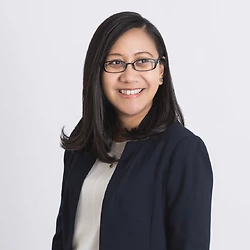Prior Knowledge Exclusion Bars Coverage for Entire Lawsuit Alleging Multiple Instances of Wrongdoing
The United States District Court for the District of Vermont has held that there is no coverage under a CGL and professional liability policy for all claims in an underlying suit brought against an insured residential care facility because all of the claims arose from professional services rendered by the facility that it knew or should have known could give rise to a claim. James River Ins. Co. v. Inn-One Home, LLC, 2021 WL 3619676 (D. Vt. Aug. 16, 2021).
The insured facility admitted a resident for care related to dementia. While at the facility, the resident allegedly received improper medication resulting in her hospitalization; was injured when she escaped from the facility; and also was injured when a caregiver assaulted her. The caregiver was later terminated by the facility and criminally prosecuted for the assault. The resident died shortly thereafter, and her estate and family members subsequently filed a suit against the facility for negligence, breach of contract, wrongful death, negligent hiring, and violation of state laws arising from the facility’s negligent care of the resident and the assault.
In the ensuing coverage litigation, the court granted the insurer’s motion for summary judgment and held that the insurer had no duty to defend or indemnify the facility in the underlying suit pursuant to a prior knowledge exclusion in the policy. The exclusion barred coverage for “any claim . . . [b]ased on or directly or indirectly arising out of or resulting from . . . [a] ‘professional service’ rendered prior to the effective date of the first Policy period . . . if any insured knew or could have reasonably foreseen that the ‘professional service’ could give rise to a ‘claim.’” The policy defined “claim” to include a “‘suit’ . . . arising out of or resulting from the rendering or failure to render ‘professional service.’” The court determined that: (i) the assault was not disclosed in the facility’s application for the policy; (ii) the facility’s rendering of professional services took place before the effective date of the policy; and (iii) the facility knew or could have reasonably foreseen that the assault could give rise to a claim. As a result, the court held that the prior knowledge exclusion barred coverage for the entire suit.
The facility subsequently filed a motion to alter or amend the order on the ground that summary judgment should have been confined to claims relating only to the assault. The court denied the motion to amend and held that the prior knowledge exclusion in the policy precluded coverage for all claims brought by the deceased resident’s estate and family because they all arose from the facility’s rendering of professional services that it knew or should have known could give rise to a claim. The court explained that the prior knowledge exclusion did not require that the court examine each factual event and incident separately to determine whether it was within the scope of the exclusion. Because the exclusion applied to any “suit . . . brought against [the facility], arising out of or resulting from the rendering or failure to render ‘professional service[,]’” and “does not differentiate ‘claims’ and ‘suits’ based on individual facts[,]” the court reasoned that the broad language of the exclusion encompassed each “claim” in the underlying complaint as well as the entire “suit.” The court also held that the “concurrent causation” doctrine did not bar application of the exclusion, reiterating that the underlying claims were not independent or unrelated, but instead all arose from the professional services rendered by the facility to the deceased resident.


